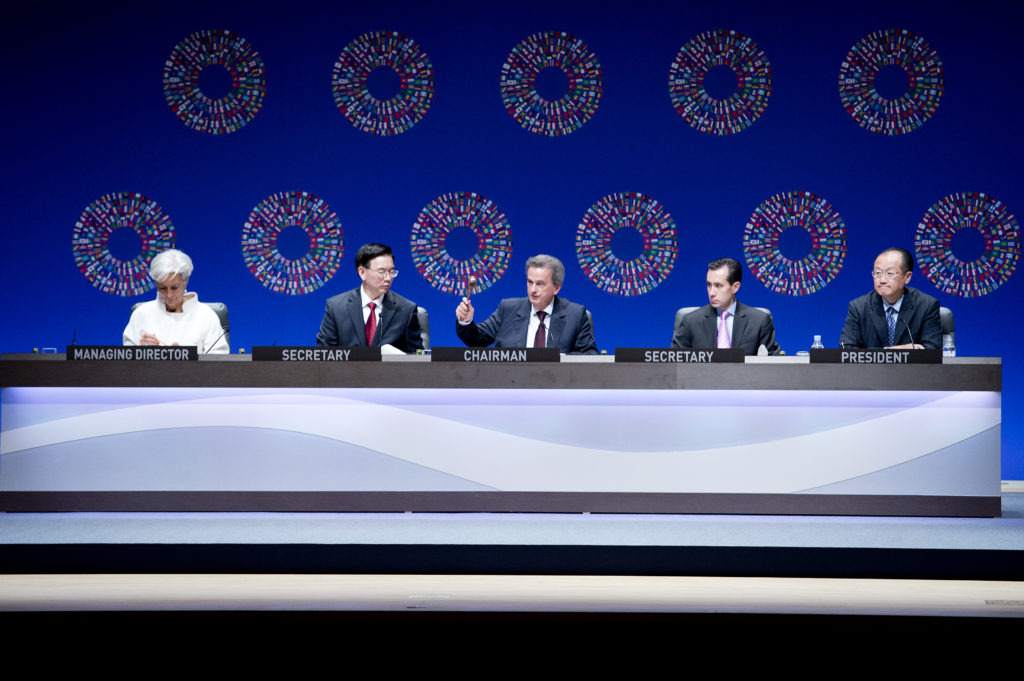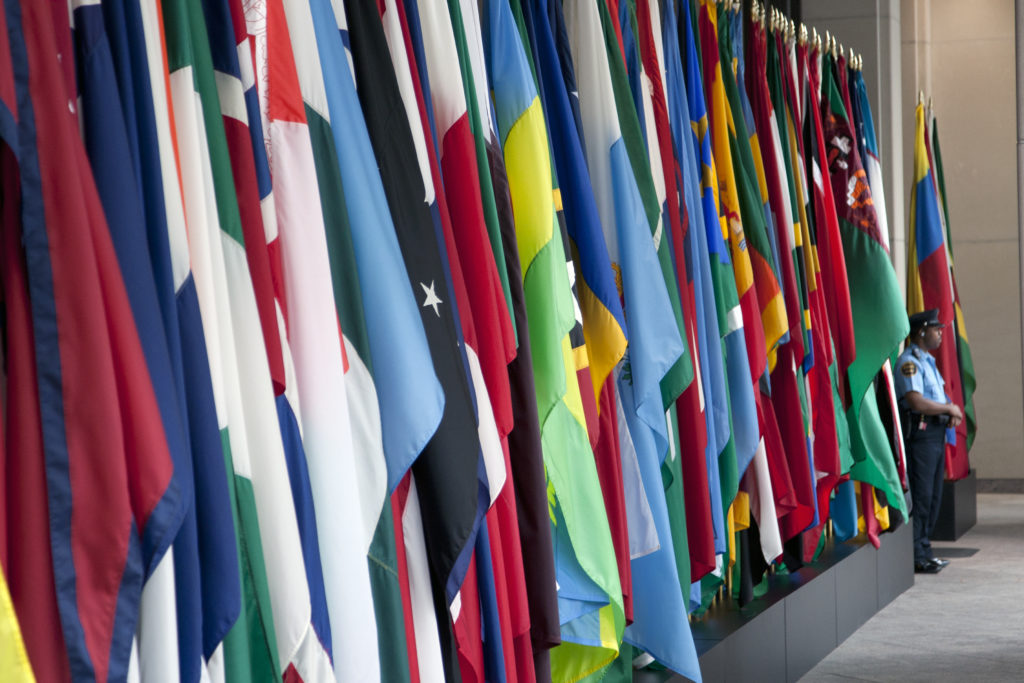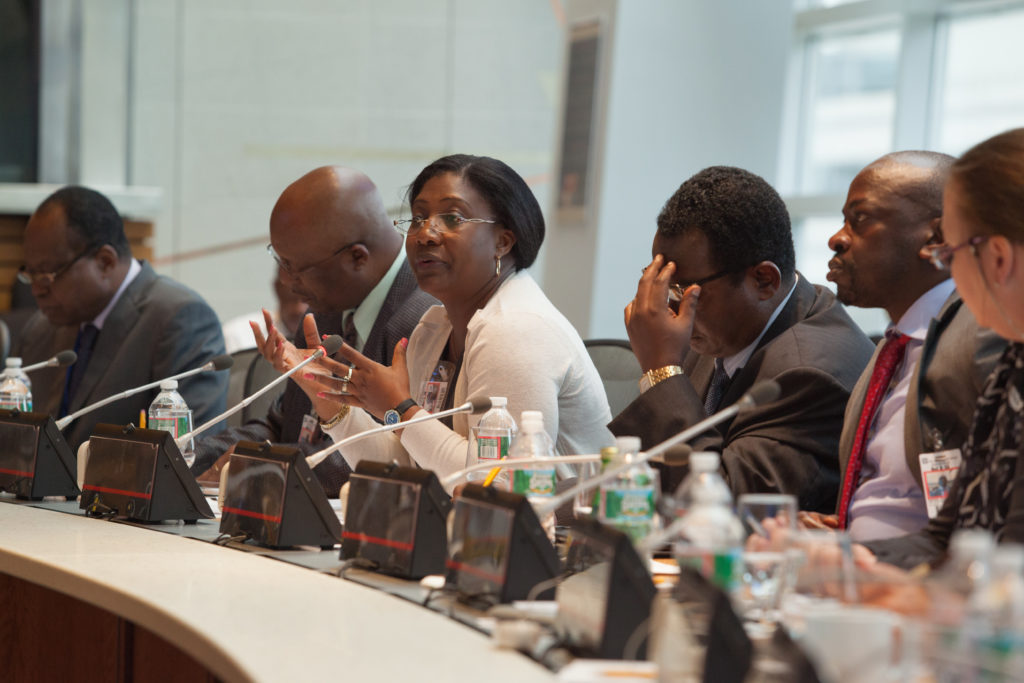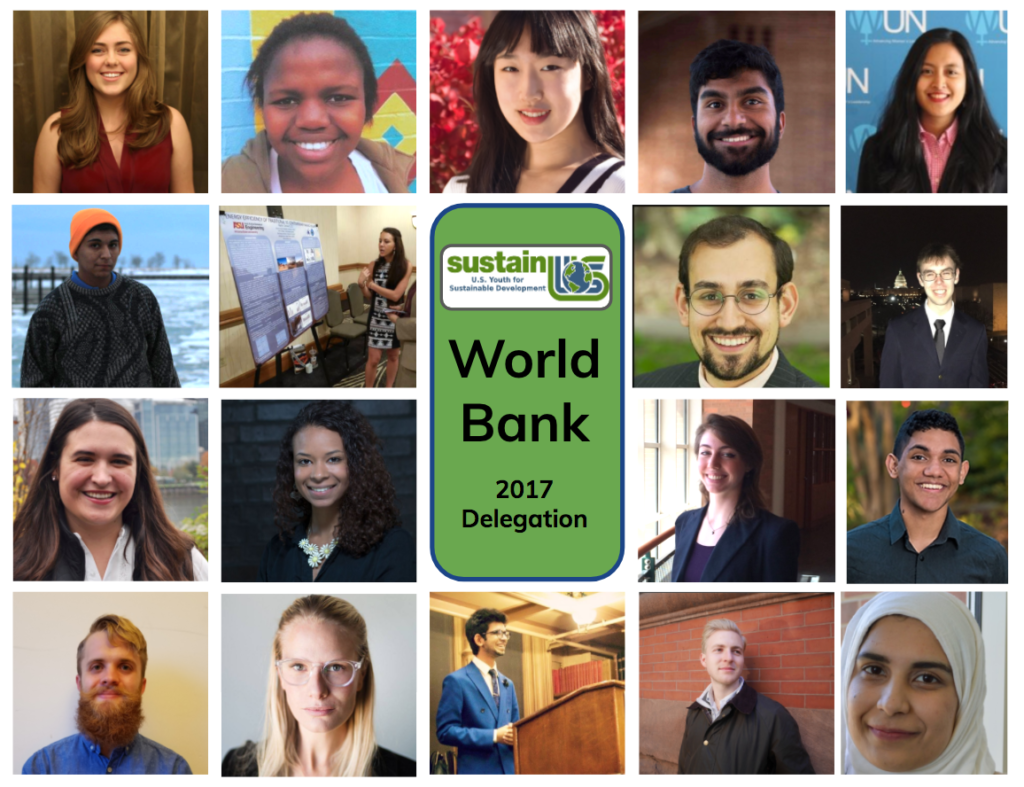The World Bank Group (WBG) is made up of five international finance organizations that leverage over $60 billion in loans and aid annually. The stated mission of the WBG is to “end extreme poverty and promote shared prosperity in a sustainable way.” Despite their public recognition of climate change as a serious threat to development, the World Bank’s current portfolio includes lucrative fossil fuel projects and limited finance for those living in energy poverty, for whom finance is most difficult to access.
The Meeting
Every fall, the governing body of the World Bank Group holds Annual Meetings to discuss their work on international economic development and finance. The Annual Meetings offer a chance to engage with delegates from 189 member countries as well as the broader general public. Over 10,000 people attend these meetings, including a substantial number of civil society organizations (CSOs) from around the world. The official governing body meetings are October 13th-15th, but many of these meetings are not open to civil society. Instead, from October 9th-13th a series of panels and roundtables are held to engage civil society and press on the bank’s work.
The Opportunity
The United States has the most voting power within the World Bank, and US youth have the right and responsibility to hold the World Bank accountable to the future it finances – our future. The World Bank still finances fossil fuel projects and fossil fuel exploration. In addition, only 20% of their energy portfolio is classified as energy access, of which only 20% is for distributed renewables. The World Bank and its leadership have spoken about the urgency of acting on climate change because of the serious impact it will have on low-income countries. However, the Bank continues to fund exploration for more fossil fuels and does not prioritize solutions that will most benefit impacted communities. We do this work with a vision of global justice, aware that the current structure of the World Bank perpetuates power structures that benefit the Global North over the Global South.





